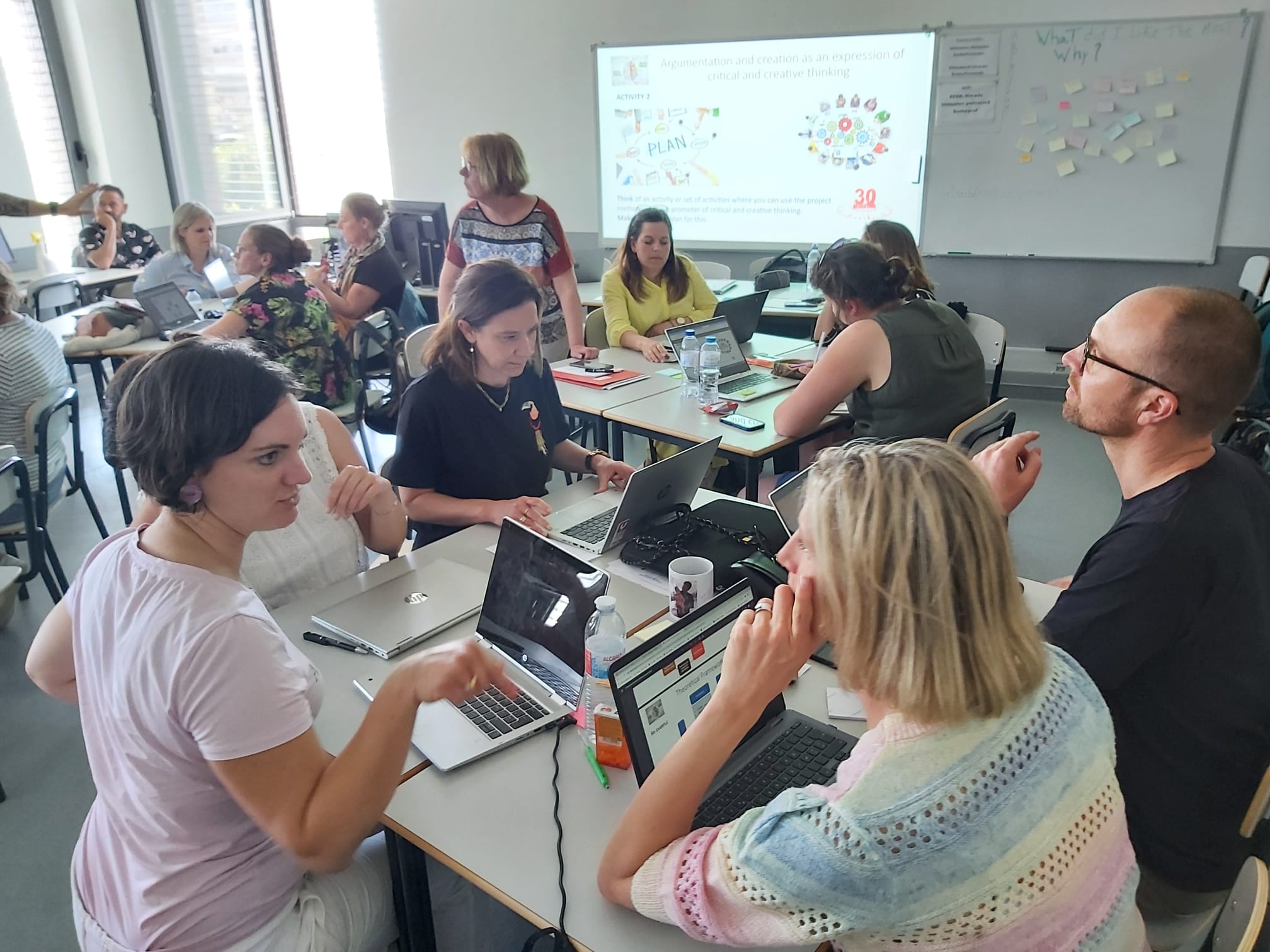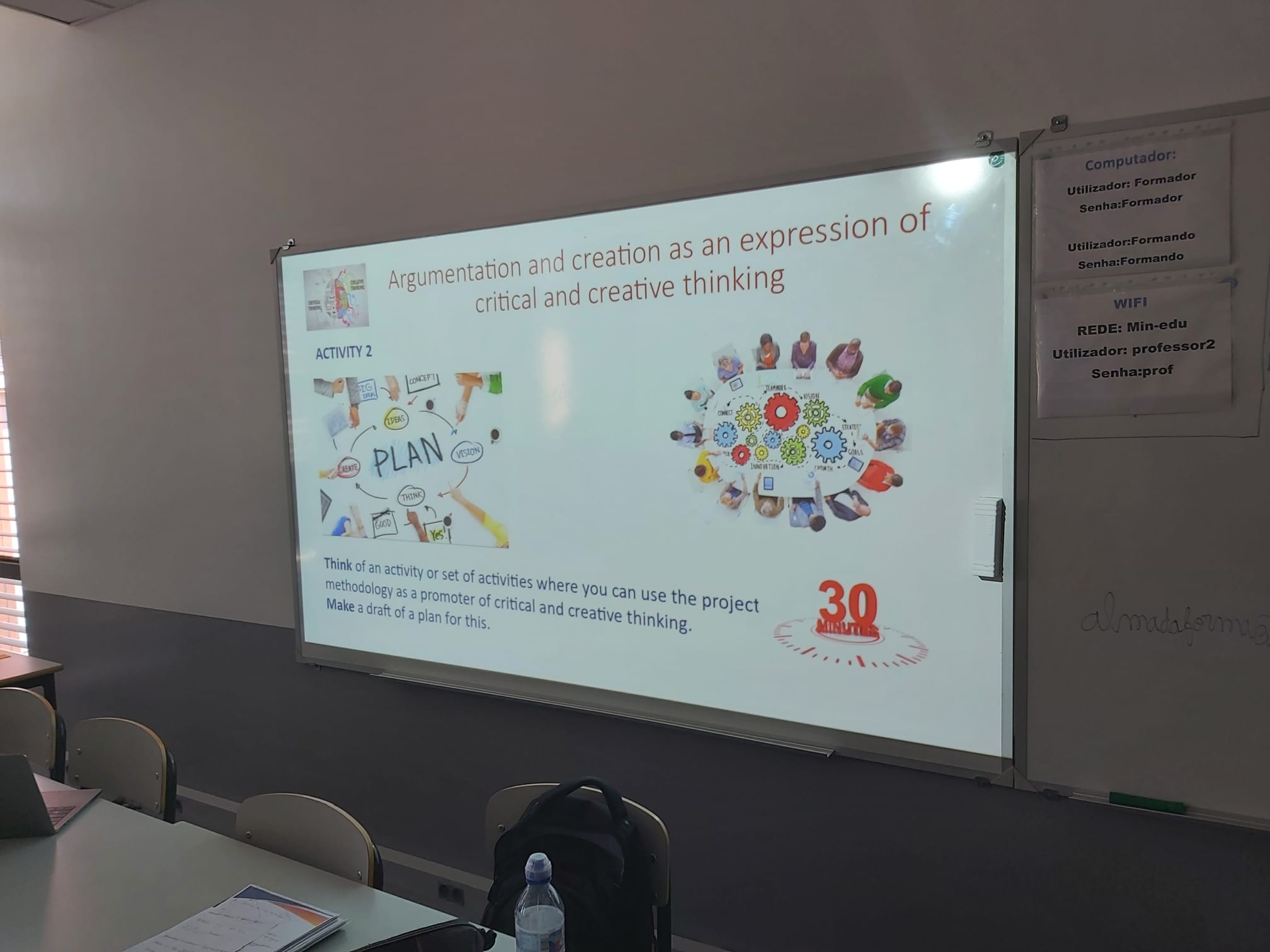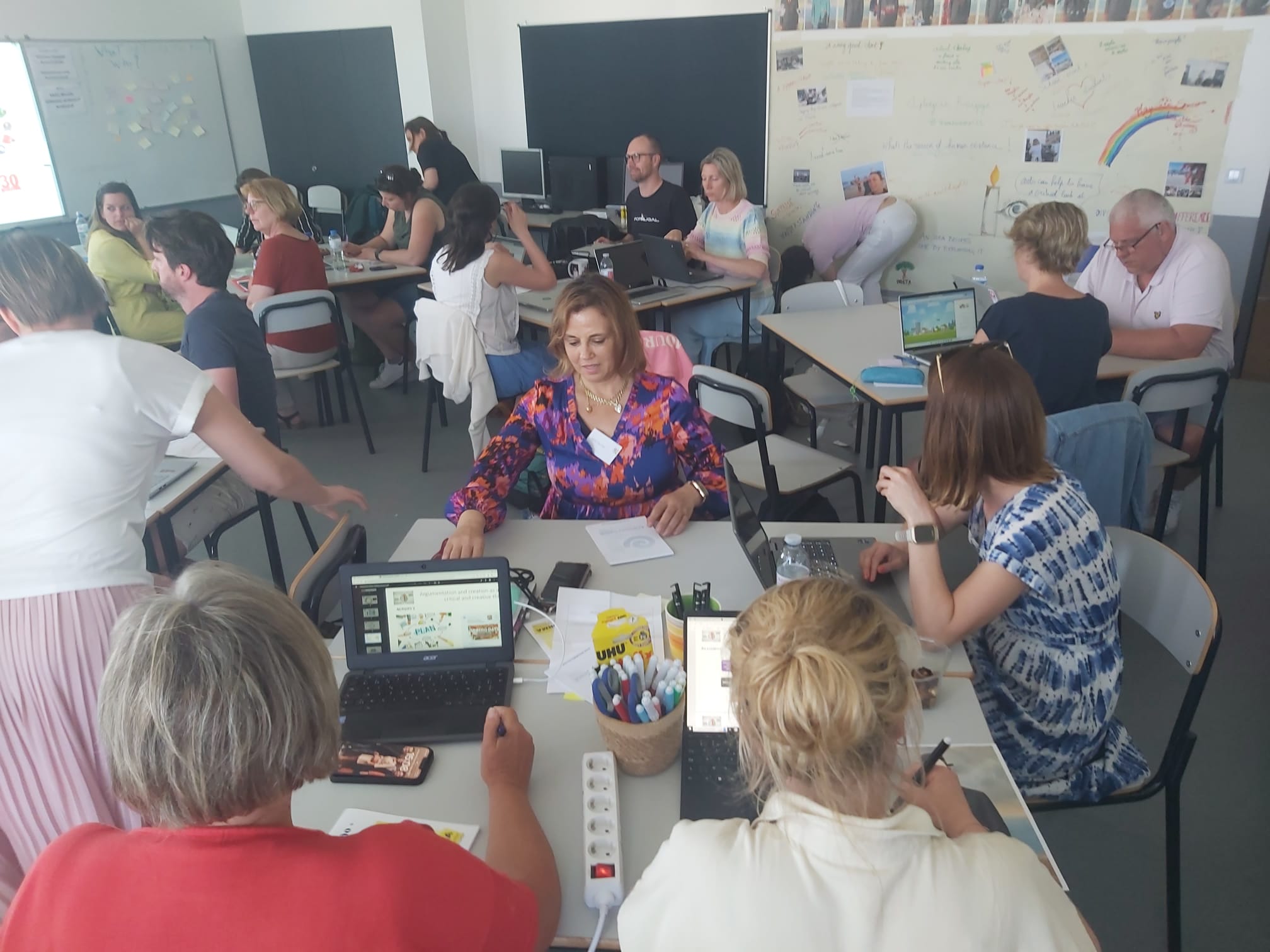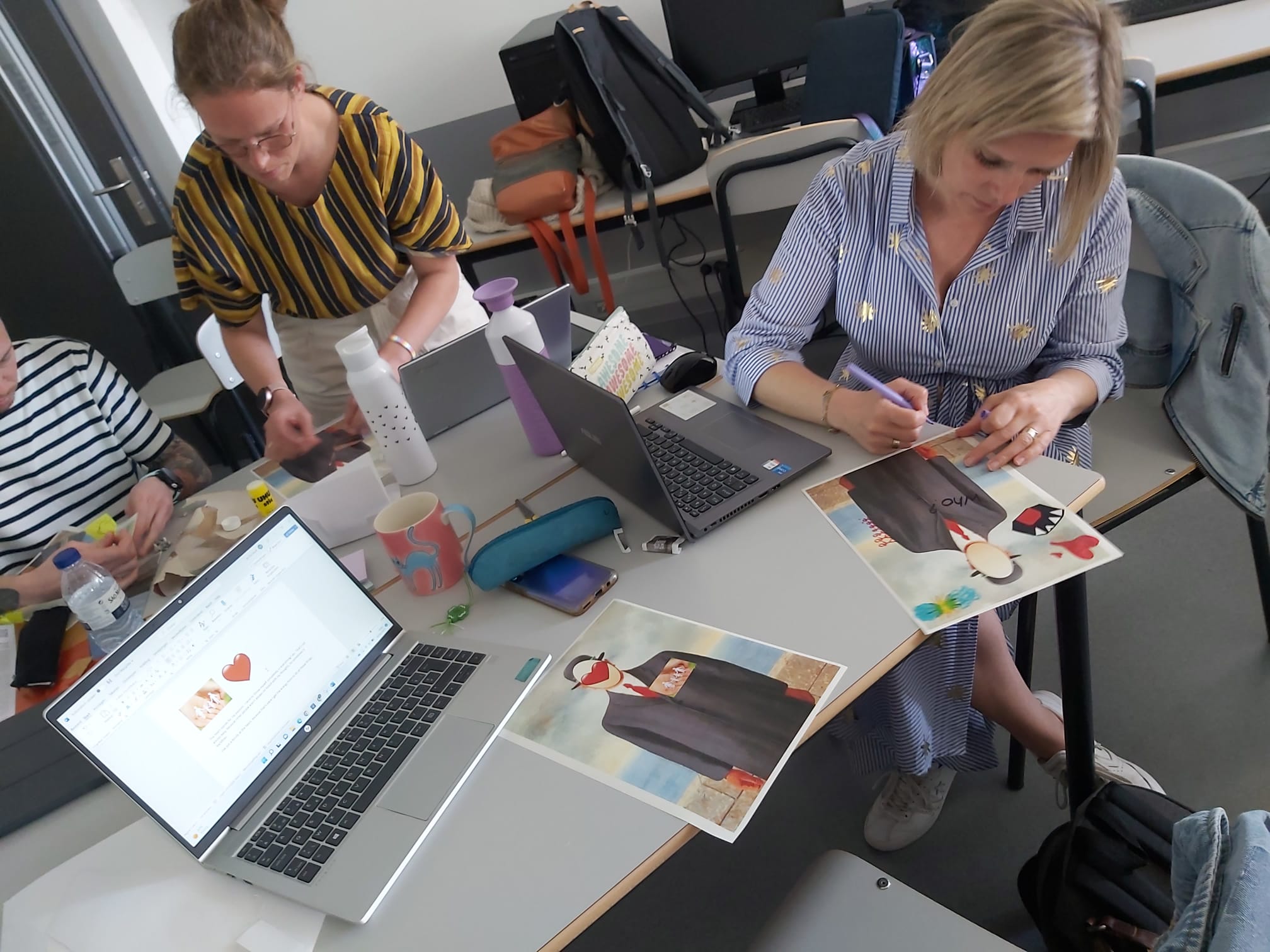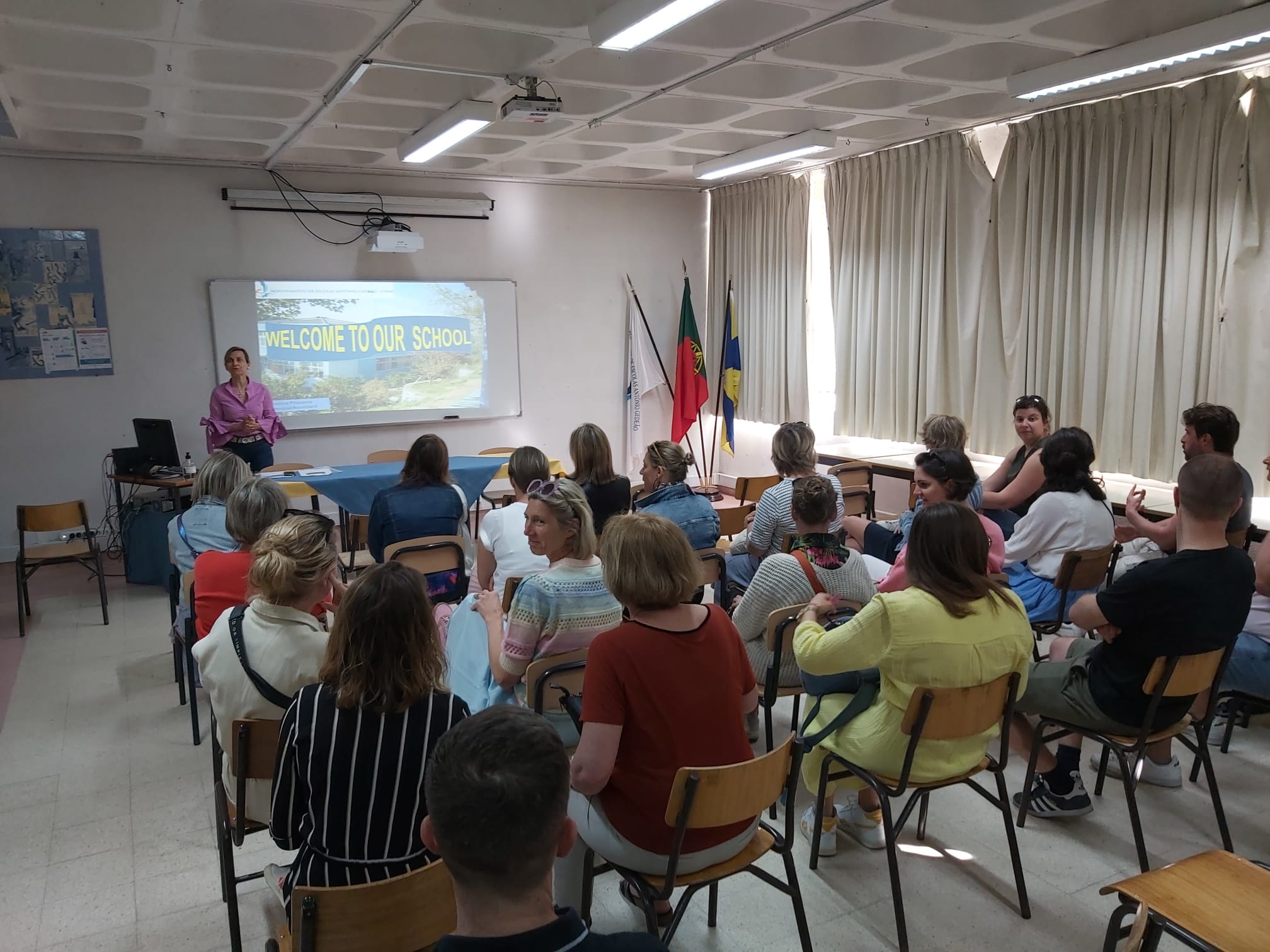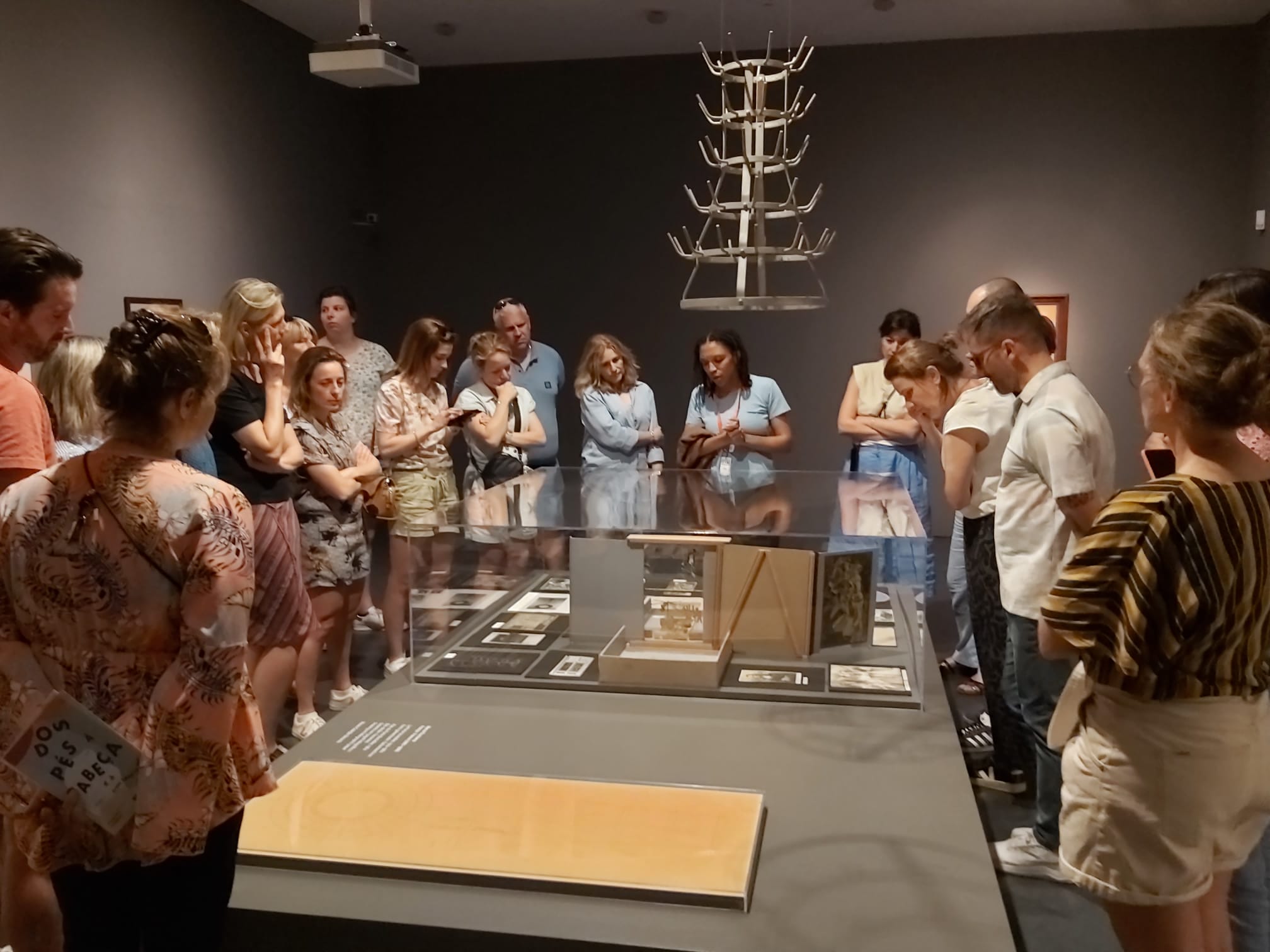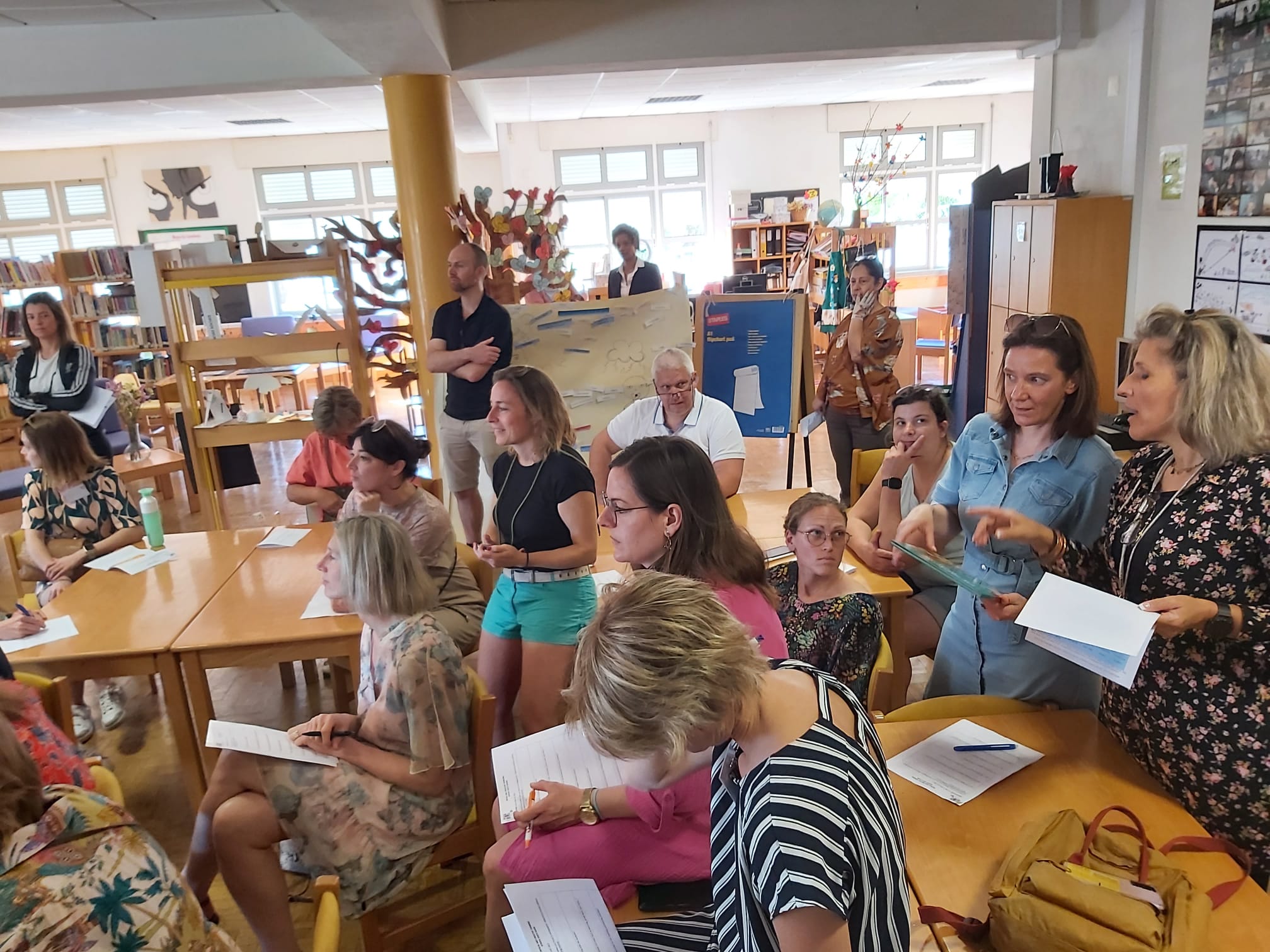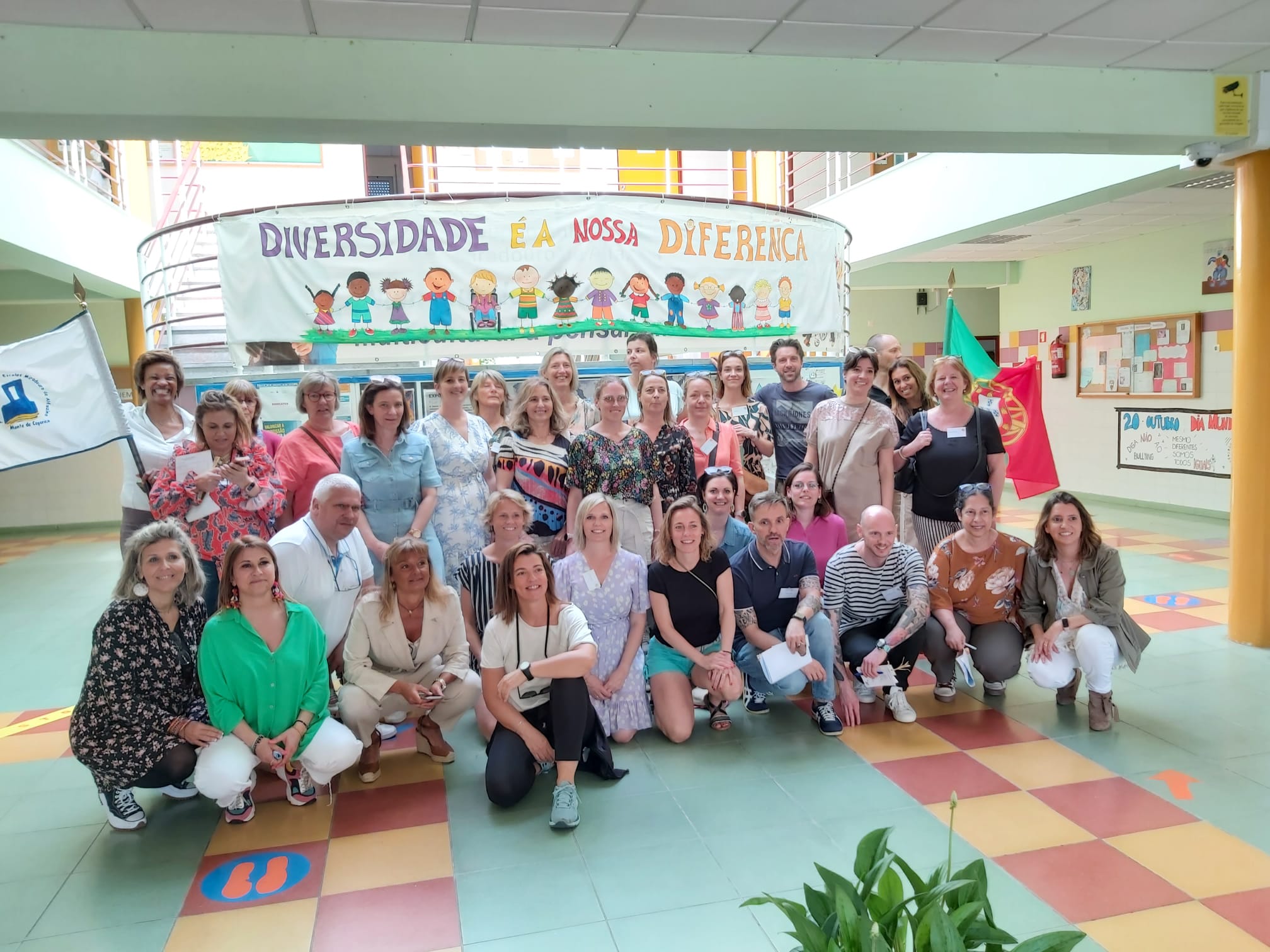Pre-Registration
15/04/2024 – 19/04/2024 Lisbon (Portugal)
Would you like to participate in this course next school year 2023-2024? Please make a pre-registration so we can keep you informed about this course.
Final Registration
15/04/2024 – 19/04/2024 Lisbon (Portugal)
Would you like to confirm your participation for this course in the schoolyear 2023-2024? Secure your place and make a final registration.
Dates can be subject to change and are only final after official confirmation by the course provider.
The course “Critical and Creative Thinking” combines a theoretical and experiential approach. This means that school visits, study visits and practical exercises are part of the course.
You will also have the opportunities to discuss and try out exercises that will help you to create learning activities for your students.
The aim is to improve the critical and creative thinking of the students resulting in becoming more confident and autonomous problem-solvers and thinkers. This on its turn, will enhance their motivation and empower the students to better tackle the challenges of our modern society.
Critical and creative thinking involves students thinking broadly and deeply using skills, behaviours and dispositions such as reason, logic, resourcefulness, imagination and innovation in all learning areas at school and in their lives beyond school.
Thinking that is productive, purposeful and intentional is at the centre of effective learning. By applying a sequence of thinking skills, students develop an increasingly sophisticated understanding of the processes they can use whenever they encounter problems, unfamiliar information and new ideas. In addition, the progressive development of knowledge about thinking and the practice of using thinking strategies can increase students’ motivation for, and management of, their own learning. They become more confident and autonomous problem-solvers and thinkers.
Responding to the challenges of the twenty-first century – with its complex environmental, social and economic pressures – young people need to be creative, innovative, enterprising and adaptable, with the motivation, confidence and skills to use critical and creative thinking purposefully.
This capability combines two types of thinking: critical thinking and creative thinking. Though the two are not interchangeable, they are strongly linked, bringing complementary dimensions to thinking and learning.
Critical thinking is at the core of most intellectual activity that involves students learning to recognise or develop an argument, use evidence in support of that argument, draw reasoned conclusions, and use information to solve problems. Examples of critical thinking skills are interpreting, analysing, evaluating, explaining, sequencing, reasoning, comparing, questioning, inferring, hypothesising, appraising, testing and generalising.
Creative thinking involves students learning to generate and apply new ideas in specific contexts, seeing existing situations in a new way, identifying alternative explanations, and seeing or making new links that generate a positive outcome. This includes combining parts to form something original, sifting and refining ideas to discover possibilities, constructing theories and objects, and acting on intuition. The products of creative endeavour can involve complex representations and images, investigations and performances, digital and computer-generated output, or occur as virtual reality.
This course will focus on how to approach and implement critical and creative thinking in your own context. From a theoretical framework, we move on to concrete practical examples accompanied by school visits.
Final registration
Secure your place and make a final registration HERE.
Date
15/04/2024 – 19/04/2024 (Lisbon)
If this date doesn’t suit you we can organise an additional session for your school/organisation if there are at least 12 participants.
Target group
Target group for this course are teachers, trainers, educational counsellors, career counsellors, school psychologists, headmasters, school management and administrative staff working in either primary schools, secondary schools, VET schools, training centers, adult education, higher education, kindergarten and NGO’s.
Please be aware that the course may include teachers from different school levels.
Language
The course is organized in English
PORTUGAL – LISBON SOUTH BANK
The course is organized in the training facilities of Almadaforma, located at the South Bank of the river Tejo in Lisbon (15 km from Lisbon airport).
The participants are free to stay in a hotel of their own choice, however it’s advised to stay somewhere at the South Bank (=Almada) to save transport time during rush hour.
Hotel Mercure Lisboa – Almada (Rua Abel Salazar 9, 2805-313 Almada) is situated immediately near the tramline that leads to Almadaforma.
COURSE FEE
- School and study visits are part of the programme, as well as the informal moments, lunches and breaks. During those moments a lot of interaction, exchange and learning happens.
- We offer a cost structure that includes all formal and informal learning activities and opportunities.
- For a detailed explanation, have a look at our ‘Cost Structure‘.
FUNDING
- You can request an Erasmus Plus grant from your national agency which will cover almost all costs of this course.
- We can guide you through the process of funding and application. To do so, you need the make a pre-registration.
- After pre-registration, we’ll contact you by mail and provide the application help.
TAXI
There is a taxi service at the airport that can drive you to the hotel.
It’s particularly difficult to leave or enter Lisbon between 08:30 and 10:30h and 16:30 and 19:00h by car or taxi.
METRO/AEROBUS, FERRY AND TAXI
You can take the metro located at exit of the arrival hall of the airport and leave the metro at the terminus station Cais do Sodré.
The Aerobus is another good way to travel from and to the airport. The Aerobus provides a connection between the airport and Cais do Sodré.
At the boat station of Cais do Sodré, you can take the ferry boat to Cacilhas (south bank of River Tejo). During working hours, there is a crossing every 15 minutes. The ferry takes 12 minutes to arrive on the other side of the river.
At Cacilhas you can take a taxi or tram (Line 3, direction Universidade, stop Ramalha) for the remaining 5 km.
RENTAL CAR
Sharing a rental car with 3 other people for all transport during the course, can be interesting.The airport is connected directly to the hotel by the Ring of Lisbon and the North-South Connection (Eixo Norte – Sul).
Crossing the bridge, you have a marvellous view on Lisbon, the estuary and both banks of the River Tejo.
Bring or rent a GPS and check the prices of rental cars on the Internet.
TRANSPORT FROM HOTEL TO ALMADAFORMA
Walk 400 m from the hotel to the tram stop ‘Ramalha’, where you take the tram of Line 3 to ‘Universidade’ .
Leave the tram at stop ‘Monte de Caparica’.
Walk 600 m through the village to Almadaforma.
